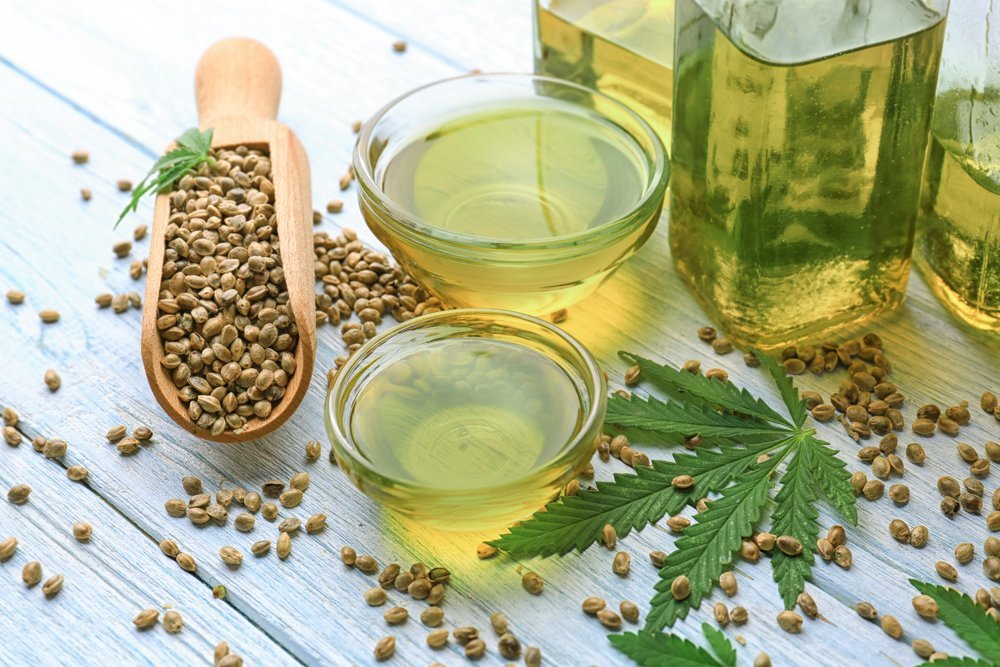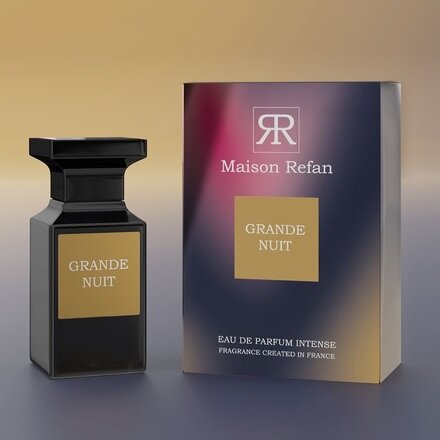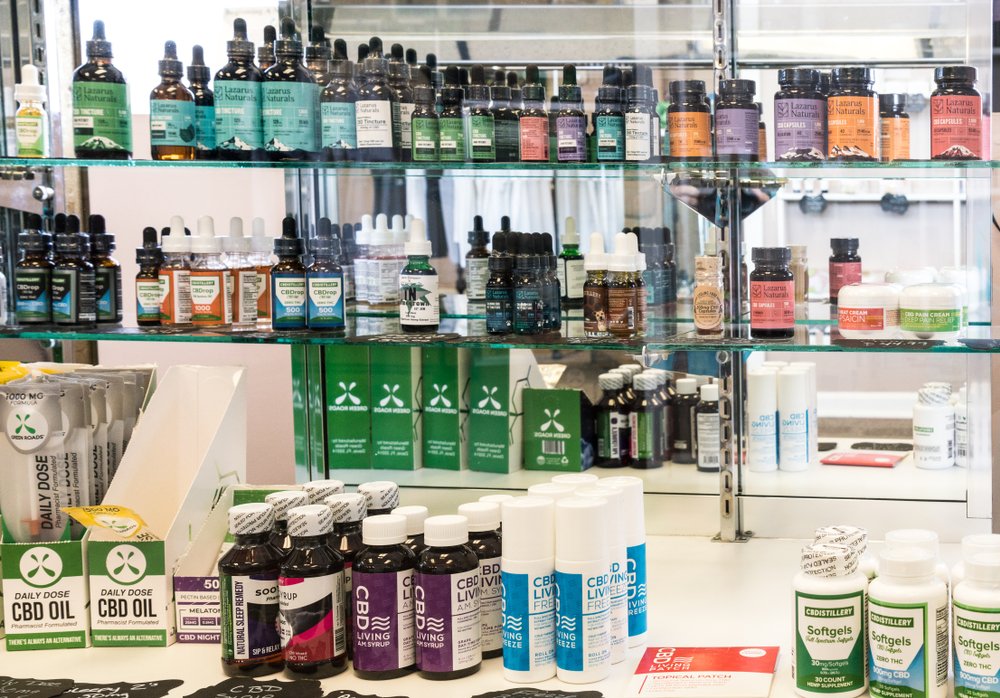The hemp renaissance

Once taboo, will this highly-industrious and sustainable plant change the way we live?
Across Europe there has been a surge of hemp-based stores and products popping up all over the place. From health to construction, this highly versatile product may even be the answer to the ‘plastic’ problems plaguing the earth. Hemp was used to build Western civilisation before being outlawed during times of prohibition in the early 20th century. We might just be on the cusp of a second wave revolution of hemp and hemp-based products. Here’s what you need to know!
What is hemp?
Hemp, or industrial hemp, is a variety of the Cannabis sativa plant species that is grown specifically for industrial use. It can be used to make a wide range of products. Hemp is often associated to marijuana. While both plants belong to the Cannabis sativa species, hemp and marijuana are categorised by their Tetrahydrocannabinol (THC) content.
THC is the primary psychoactive compound associated with the psychoactive affects found in marijuana. According to EU regulations, Marijuana is any cannabis plant with a THC content of over 0.2%. Whereas, industrial hemp is any plant with a THC content of 0.2% or less.
Alongside bamboo, hemp is one of the fastest growing and sustainable plants on the Earth.
Hemp is currently used for the following:
- Clothing and textiles
- Paper
- Plastic
- Construction
- Wellness and medicine
- Cosmetics and skin care
- Fuel
- Agriculture
- Food and drink
History of hemp
According to a study published in the Agricultural Journal of Vegetation History and Archaeobotany by Berlin Free University, hemp emerged from the East at the end of the last ice age, somewhere between 11,500 – 10,000 years ago. Hemp was used by pre-civilizational cultures for medicine and textiles as well as religious ceremonies.
In Europe, the Yamanaya people of modern-day Ukraine are believed to have spread the plant throughout Western Europe 5,000 years ago. Even the Greeks used hemp in their textiles before the birth of Christ. In more recent history Vikings, used hemp for rope and shipbuilding material. The British, Spanish, and Portuguese settlers also used hemp and then distributed hemp crops to the Americas to cultivate it for imperial gain. Hemp in the Americas was sent back to European countries for food, clothes, rope, biofuel, building material, and animal feed.
During the medieval period, hemp became one of the most important crops for Europeans. In 1535, the infamous King Henry VIII required all farmers to sow a quarter of an acre of hemp for every 60 acres they owned to help to boost English industries. A few hundred years later half way across the world, hemp was Australia’s largest production crop for over 150 years.
It all came crashing down when cannabis was outlawed across most of the world around 1928, during the time of prohibition. Industrial hemp was bundled with the psychoactive cannabis THC plant and together they became taboo, almost forgotten in history. That is, until now.
Is it legal?
The USA and Canada have led the movement to legalise hemp and cannabis on a larger than just medicinal scale. Europe it seems is not too far behind. The “new science” and understanding of hemp and hemp-based products for human consumption is growing by the day.
Until recently, many products currently sold in the EU were in a legal grey area.
In November 2020, in a breakthrough for the hemp industry, the European Court of Justice ruled that cannabidiol (CBD) extracted from the cannabis plant can not be considered a drug under the 1961 United Nations Single Convention on Narcotic Drugs.
The highest court in the European Union said it was not a narcotic drug as “it does not appear to have any psychotropic effect or any harmful effect on human health.” The decision by the court of justice of the European Union deals a severe blow to efforts by some EU countries to limit the sale of CBD, while at the same time gives the CBD industry a massive boost.
Furthermore, the court ruled that the French ban on the marketing of hemp-derived CBD products contradicted EU law on the free movement of goods. “The national court must assess available scientific data in order to make sure that the real risk to public health alleged does not appear to be based on purely hypothetical considerations,” the court judged.
“A decision to prohibit the marketing of CBD, which indeed constitutes the most restrictive obstacle to trade in products lawfully manufactured and marketed in other EU member states, can be adopted only if that risk appears sufficiently established.”
Cultivating hemp in Europe is another story. State-by-state laws often forbid the growing of the hemp plant, despite now being legal to import. Hemp in the EU is only currently grown in Spain, The Netherlands, and Belgium – but is often imported from the United States or Canada.
What is a hemp store and what products do they offer?
As the hemp industry continues to grow, hemp stores and products are popping up in shopping centres and major cities all across Europe and the UK. Due to the diverse industrial nature of the plant, a hemp store doesn’t have a one size fits all approach. Traditionally they sold textiles and clothing. However, these days, with the rise and rise of CBD oil, it means that a hemp shop almost resembles a chemist or spa, full of a variety of wellness and cosmetic products.
You will also find hemp and hemp seeds offered as a superfood. Vegans use hemp protein as a substitute for whey. CDB is also being spliced into a variety of food and drinks and sold over the counter in some of the biggest known chains. CBD is being sold as a natural way to deal with anxiety and stress. It’s even been added into beer!
Consumers are making more conscious decisions about the products they buy. On the back of the sustainable, organic and eco movements, more and more people are learning about the sustainable and beneficial natures of hemp. Moving forward the demand for fabrics, paper, biofuels and of course CBD are here for the long term. With the positive worldwide reversing of outdated and ignorant laws, the industry is expected to climb to new heights; the opportunities are endless.
How to profit from Hemp?
CDB is one of the fastest growing wellness products in the UK and Europe. In the UK, 11% of the population have said they’ve used a CBD product to treat some kind of medical issue. According to market intelligence and strategic consultancy firm, Prohibition Partners, by 2028, the European hemp market is expected to be worth €115.7 billion. This is backed up by research that the global industrial hemp market is expected to grow at a compounded annual growth rate of 15.8% from 2020 to 2027.
Investing early into alternative technologies is a great way to corner the market before it goes mainstream. The demand for hemp and hemp-based products is very real. Companies right across Europe and the UK are producing and experimenting with new and exciting CBD and hemp-based products regularly. As demand grows and laws change, raw hemp costs will be reduced as the plant itself is one of the most sustainable and fastest growing known to man, allowing incredibly healthy bottom line and for your margins to flower.
Want to open a hemp store?
Daily CBD has a country to country guide on the laws for Europe. We also strongly suggest you check your local laws and regulations regarding the importing and sale of hemp-based products.
Alternatively, you could buy a hemp franchise. Buying into an established brand will negate all the nasty legal leg work involved within new industry tech. Furthermore, when buying into a franchise, you reduce all the inherent risks that come with starting a new business, as well as the companies branding, industry know-how and ongoing support.
If you’re interested in a hemp store franchise feel free to get in touch with the team at franchising.eu.
Featured franchises
No featured franchises
Breaking news
Show all
Milano Cosmetics franchise overview
Milano Cosmetics offers a global franchise model for professional beauty salons with defined financial terms, operational support, and international p

REFAN franchise network
REFAN is a European cosmetics and perfume manufacturer offering a standardized franchise model based on private-label production and retail.

Neuhaus Chocolates franchise model
An established Belgian chocolate house offering a structured franchise concept built on heritage, premium quality and international brand recognition.

Green Line Clean
Green Line Clean offers an eco-friendly car wash franchise with clear fees, low operating costs and strong support for new investors.


